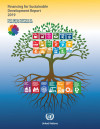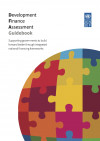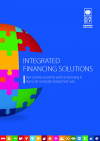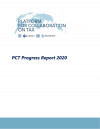- Benin
- Botswana
- Burkina Faso
- Burundi
- Cabo Verde
- Cameroon
- Comoros
- Congo
- Côte d'Ivoire
- Djibouti
- Egypt
- Eswatini
- Gabon
- Ghana
- Guinea
- Guinea Bissau
- Kenya
- Lesotho
- Malawi
- Mali
- Mauritania
- Mauritius
- Morocco
- Mozambique
- Namibia
- Nigeria
- Rwanda
- Sao Tome and Principe
- Senegal
- Seychelles
- Sierra Leone
- South Sudan
- Tanzania
- The Democratic Republic of the Congo
- The Gambia
- Togo
- Tunisia
- Uganda
- Zambia
- About
- Building blocks
-
Country experiences
INFF interactive map
- News and events
- Resources
- Dashboard
- INFF building blocks
-
Country experiences
INFF interactive map
- Benin
- Botswana
- Burkina Faso
- Burundi
- Cabo Verde
- Cameroon
- Comoros
- Congo
- Côte d'Ivoire
- Djibouti
- Egypt
- Eswatini
- Gabon
- Ghana
- Guinea
- Guinea Bissau
- Kenya
- Lesotho
- Malawi
- Mali
- Mauritania
- Mauritius
- Morocco
- Mozambique
- Namibia
- Nigeria
- Rwanda
- Sao Tome and Principe
- Senegal
- Seychelles
- Sierra Leone
- South Sudan
- Tanzania
- The Democratic Republic of the Congo
- The Gambia
- Togo
- Tunisia
- Uganda
- Zambia
- News and events
- Resource library
- Contact
- Dashboard
- Share your INFF experience
About INFFs
What is an INFF?
An INFF is a tool to implement the Addis Ababa Action Agenda at the country level.
An integrated national financing framework (INFF) helps countries strengthen planning processes and overcome existing impediments to financing sustainable development and the Sustainable Development Goals (SDGs) at the country level. It lays out the full range of financing sources – domestic and international sources of both public and private finance – and allows countries to develop a strategy to increase investment, manage risks and achieve sustainable development priorities, as identified in a country’s national sustainable development strategy.
The INFF building blocks
INFFs are not a one-size-fits-all approach.
INFFs are developed and implemented through four building blocks: assessment and diagnostics, financing strategy, monitoring and review, governance and coordination. Each building block represents a critical component in building national capacity to strategically plan and manage the financing of sustainable development actions. Designing and implementing activities within each of these building blocks is an iterative process, with progress in each building block reinforcing the development of the others.
Actions within each component build upon the structures, processes and mechanisms already in place within national sustainable development and financial planning frameworks. While these critical components remain the same, activities within the building blocks will differ by country. The end result is an INFF that reflects the unique capacities, priorities, vulnerabilities and strengths of each country.
Origins of the INFF
"Cohesive nationally owned sustainable development strategies, supported by integrated national financing frameworks, will be at the heart of our efforts”. – Addis Ababa Action Agenda, 2015
In 2015, at the United Nations’ Third International Conference on Financing for Development, world leaders met in Addis Ababa, Ethiopia, to agree upon a new global framework for financing the 2030 Agenda for Sustainable Development and the 17 SDGs. The Addis Ababa Action Agenda outlines key policy recommendations for mobilising and aligning resources with the global goals and addressing the considerable challenges that face developing countries in financing their sustainable development.
There is a missing link between national development plans and the financial resources needed to achieve them.
The 2030 Agenda has reinvigorated national development planning processes, as countries work to align their national development priorities with global goals for sustainable development. National development plans outline a country’s vision for sustainable development and the steps needed to achieve that vision. Still, most plans and strategies lack concrete plans for how to finance these actions – a critical missing link that leaves many SDGs underfunded.
While achieving the SDGs will require a global effort to raise and direct financing to where it is most needed, national development plans, strategies and policies are at the centre of the Addis Ababa Agenda. The Agenda highlights ‘cohesive nationally owned sustainable development strategies, supported by integrated financing frameworks’ as the key vehicle for strengthening national resource mobilisation, coordination and tracking efforts. The Agenda lays the foundation for the development of the INFF concept and approach.
Why should countries adopt an INFF?
To better manage an increasingly complex financing landscape.
As the global financing landscape continues to expand with the emergence of new actors, financing instruments and modalities, INFFs help countries navigate the growing diversity and complexity of mobilising, managing and tracking funding.
To enhance coherence of different financing policies.
INFFs assess existing national financing policies and instruments in an integrated manner to better align them with national development priorities. INFFs can also help identify and prioritise areas of financing reform.
To mobilise additional financing to support sustainable development.
INFFs help countries look at the full range of financial resources available for sustainable development from public, private, domestic and international finance sources.
To strengthen the voice of developing countries in global policy processes.
INFFs can help countries better articulate their needs to the international development community, working to bridge national action with global efforts to improve the enabling environment for sustainable development financing.
To support long-term investment and strengthen medium- and long-term planning.
By connecting financing and related policies with longer-term objectives, INFFs can help align financing market incentives with longer-term goals and overcome ‘short termism’.
To match different types of financing to their most appropriate use.
INFFs guide countries through considering the characteristics of different types of finance – their potential impacts and risks – and matching each type of finance with the most appropriate investment.
To align development cooperation with country priorities and enhance the transparency of financing flows.
INFFs enable countries to track resources more accurately and comprehensively. Making SDG financing information more accessible and transparent will help guide financial flows to areas where they are most needed.
How is the international community supporting INFFs?
In 2020, the Inter-agency Task Force on Financing for Development published the first two documents in a series of guidance materials to support INFF implementation – an inception phase guide to support countries in starting their INFFs and establishing INFF work structures; and guidance for building block 1: assessment and diagnostics.
There has been considerable and growing interest from countries to receive further guidance and support to design INFFs. This demand needs to be met with international cooperation and action that coherently brings together existing initiatives, diagnostic tools and capacity-building efforts.
Several countries have already taken steps towards developing financing strategies, drawing on tools and frameworks offered by different organisations, such as development finance assessments, medium-term revenue strategies and medium-term expenditure frameworks.
To help build cohesion between these frameworks, the United Nations and the European Union, in cooperation with a growing network of partners, are developing joint approaches to bring together the respective expertise, tools and relationships of different organisations in support of country-led processes. Joint approaches have begun in a number of INFF pioneer countries. The methodological guidance for the INFF inception phase and for building blocks 1 – 4 are both informing and being informed by the work underway in the INFF pioneer countries.
The INFF Facility was launched in 2022 following the endorsement by G20 Leaders of the G20 Framework of voluntary support for INFFs. The INFF Facility brings together UNDP, UN DESA, the OECD, UNICEF, the European Union and the Governments of Italy, Spain and Sweden as a vehicle to support countries using the INFF approach. It brokers technical support in response to country demand, provides a platform for countries to share experiences and learn from one another, and strengthens partnerships in support of country-led INFFs.
Interested in learning more about INFFs?
We’ve collected reports, guidelines, toolkits and case studies from around the world to help your country learn about INFFs, access tools and approaches, gain exposure to best practices and connect with other countries that have embarked on an INFF.
1An overview of INFFs and the four building blocks
2Learn how to implement a Development Finance Assessment
3Explore country examples of policy reform for financing the SDGs
4Explore avenues for strengthening domestic resource mobilisation
A growing number of countries have already started developing and implementing their INFFs.
Check out the country experiences page to learn more about how countries around the world are developing and implementing activities within the INFF building blocks.
Country experiencesHas your country already started its INFF? We want to hear from you.
We are always looking to grow the Knowledge Platform with stories, resources and best practices from countries that are developing or implementing activities within the four INFF building blocks. We want to showcase your successes, challenges and lessons so other countries can learn from your experience.
Share your INFF experience
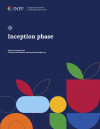



-1709188450.png)


-1709188438.png)

